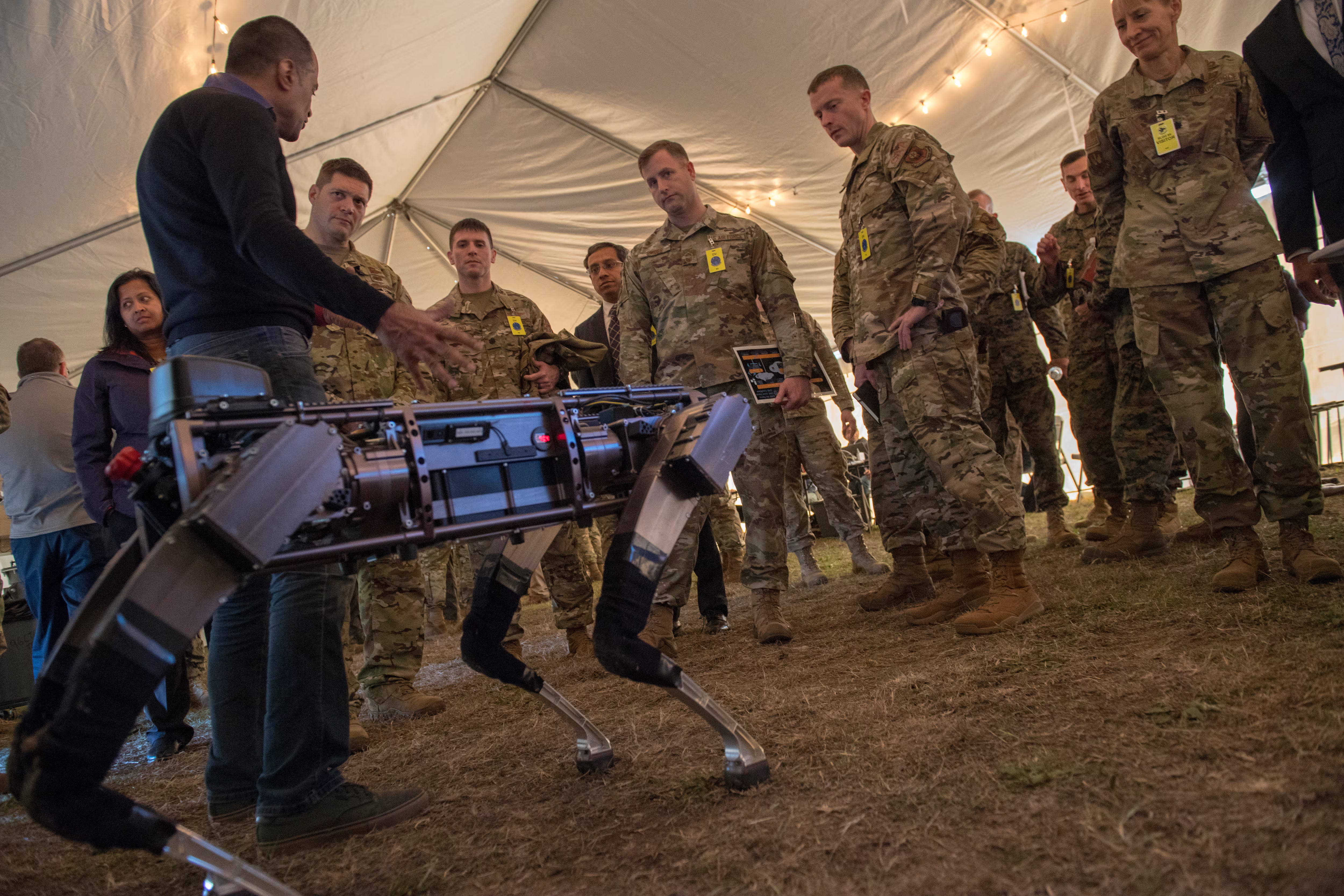


The defense industry needs new entrants, and a supportive government during crises
If we see the same old story of the government claiming to support small businesses but prioritizing old incumbents, investment dollars will disappear.

Will coronavirus stall DoD’s Silicon Valley outreach efforts?
The Pentagon has been making inroads into the Silicon Valley-based venture capital community. Will COVID-19 force them to hit pause?

Small tech companies got a combined $1B at US Air Force’s virtual version of South by Southwest
But unlike SXSW, neither Janelle Monae nor Chris Evans were slated to attend.

Should the Pentagon stop playing the role of venture capitalist?
In this commentary, a reader discusses what role the government should serve when it comes to working with startups on defense projects.
More Stories

Defense innovation experts to Congress: Put money where Pentagon’s mouth is
For the Department of Defense to embrace the leap-ahead technologies needed to compete, Congress must use its funding power to make major players out of small, disruptive tech firms.
By Joe Gould

The problem of Congress & tech literacy | Culture Clash 2.0
Just how much of a problem is Congress's overall lack of tech literacy? Here's what our roundtable discussion had to say.

How to get over the funding hump | Culture Clash 2.0
After the initial success of getting their first contract, many startups in the defense sphere hit a roadblock: When will more money come in?

Delivering a return: How DoD could change the equation | Culture Clash 2.0 Part II
If venture capital and the Pentagon can come together, the results could be game changing. But – how do they get there?
Why investors say defense isn’t a safe bet | Culture Clash 2.0 Part I
One would think that the role of venture capital in defense would be simple, and that firms would be lining up to invest. But in reality, that's not the case.
As tech startups catch DoD’s eye, big investors are watching
A few key Silicon investors have emerged as the exceptions to the rule, placing bets on defense startups. And a lot is riding on their success.
By Jill Aitoro
‘The math doesn’t make sense’: Why venture capital firms are wary of defense-focused investments
The Pentagon is working hard to entice small technology companies to work on defense projects, but investors that could prop up these businesses seem wary of putting forth the cash.
By Aaron Mehta
How corporate defense venture funds fit into the VC ecosystem
The Pentagon needs more venture capital firms to invest in defense projects. But a number of defense primes have their own venture funds. How does it all work together?
By Aaron Mehta
Silicon Valley investors to DoD: Dual-use tech is a bad strategy
Tech that can be adapted from the commercial market to serve the needs of the military is core to the Defense Department's innovation strategy. But those willing to put money toward the big ideas think it’s the wrong approach.
By Jill Aitoro
DoD’s top IT official talks AI, JEDI, and how to win over the commercial tech community
In an exclusive interview in December, the Pentagon Chief Information Officer Dana Deasy shared his priorities and strategy reshaping defense technology.
By Jill Aitoro
4 areas where the DoD could make tech development easier
Representatives of venture capital firms and small startups have a few suggestions for the Pentagon.
By Joe Gould
There’s a ‘sovereignty movement’ in tech, with big consequences
"We talk a lot about trade war with China. There is a trade tension as well between the U.S. and our allies in Europe right now," says Trae Stephens of tech company Anduril and venture firm Founders Fund.
By Jill Aitoro
Tech startups still face the Pentagon’s ‘valley of death’
“I think the fundamental misunderstanding between the DoD and venture investors is just how difficult it is to keep the wheels on a fast-growing startup.”
By Joe Gould
Boeing’s venture fund boss talks venture capital and growing defense investments
"A lot of the VCs don’t have the same level of technical due diligence around focused aerospace technologies that we can bring," says Brian Schettler of Boeing's HorizonX venture fund.
By Aaron Mehta


